#paul parnes
Explore tagged Tumblr posts
Text

Auditioning for Larry Parnes, 10th May 1960.
178 notes
·
View notes
Text

By macabre coincidence an event that took place around Bristol marks a major turning point in the story of pop music. Eddie Cochran died hours after appearing at the Bristol Hippodrome in 1960, as part of the Larry Parnes-produced Anglo-American rock ’n’ roll package tour. Two of the people who shared a stage with Cochran that night were Tony Sheridan and a Liverpudlian singer called Johnny Gentle. Both were under contract to Parnes and both would play a significant role in the history of the most influential British act of all time, the Beatles. Sheridan, the first British rock ’n’ roller to sing and play his own guitar live on British TV, would become best known for the recordings he made in Hamburg with the Beatles shortly before they found fame.
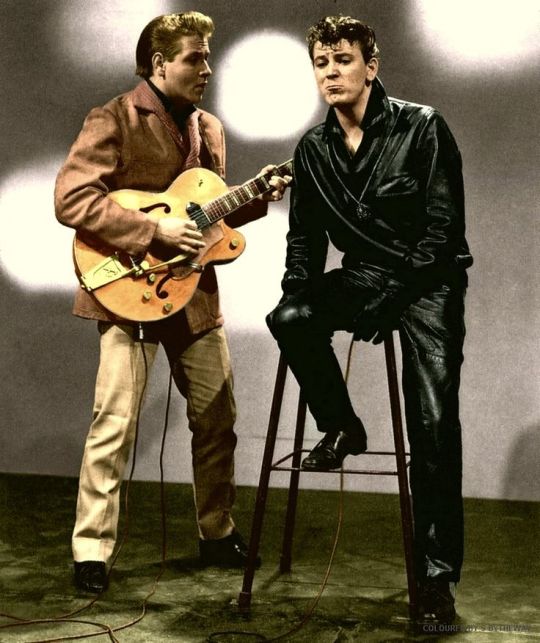
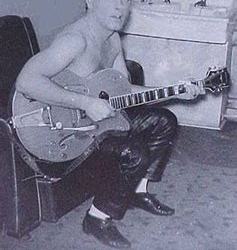
Parnes was the first manager in Britain to become as famous as his artists – the Simon Cowell of his day – with a stable of singers including Tommy Steele, Britain’s first real rock ’n’ roll star, Marty Wilde, Billy Fury, Vince Eager and others. He was also homosexual, a dangerous thing to be at a time when gay men were routinely arrested, fined or even imprisoned.
Their tour was due to take a break after a week of shows in Bristol, and Cochran and co-headliner Gene Vincent wanted to get home to America. Cochran was in a hurry to get to London, where he was going to meet up with Vince Eager before the pair flew to the States together, and Cochran and Vincent rented a private hire taxi, driven by George Martin from Hartcliffe, to take them. Shortly after 11pm on 16 April 1960, their car set off from Bristol’s Royal Hotel (now the Bristol Marriott Royal, on College Green) for London Airport.

Sadly, none of the passengers would make their flight. Less than an hour out of Bristol, Martin realised he had taken a wrong turn. On Rowden Hill, a notorious accident black spot near Chippenham, he lost control and the car spun backwards, hitting a lamppost. The impact of the crash sent Cochran up into the roof of the car and forced the rear passenger side door open, throwing him onto the road. Martin and tour manager Patrick Thompkins, who were in the front of the vehicle, were able to walk away uninjured. The three passengers who had occupied the back seat – Eddie, Gene and Eddie’s girlfriend Sharon Sheeley – were lying on the grass verge. All three were rushed to Chippenham Cottage Hospital, before being transferred to St Martin’s Hospital, just outside Bath. Vincent had broken his collarbone, Sheeley was badly bruised and concussed, but Cochran was seriously injured and would not regain consciousness: he died in hospital in Bath the following day. A young police cadet, David Harman, was among those called to help clear the scene after the crash. Harman would later find fame as Dave Dee, front man of the hit group Dave Dee, Dozy, Beaky, Mick and Tich.


Three weeks after Cochran’s death, Larry Parnes auditioned the Beatles to act as the backing group to his big signing, Billy Fury. They did not win that booking, but he hired them to play with Johnny Gentle on a short tour of Scotland. All of the Beatles were fans of Cochran and Vincent, and lapped up Gentle’s tales of life on the road with the two big American stars. When the 17-year-old George Harrison discovered that Gentle owned the shirt that Cochran had worn on stage in Bristol for that last show he begged the singer to give it to him.
Excerpt from Darryl W. Bullock's book The Velvet Mafia in The Bristol Magazine [x]
#the velvet mafia#1960#eddie cochran#gene vincent#i keep forgetting gene vincent was in the car with cochran#totally missed how close this was to the scottish tour#larry parnes#scotland#johnny gentle#precedent for paul asking for little richards shirt#guess they didnt find fans wanting any piece of textile they every touched was weird if they did it lol#bug influences#may 1960#newspaper clippings#learning gene vincent was from norfolk va and he was so rough looking they put him in leather to lean into it#cochran ends up picking up the leather pants look that spring#he'd just made a splash wearing them on brit tv#the last photo taken of cochran hes in those black leather pants#(top right)#the beatles end up getting a tailor to make pairs that look identical by spring 1961#probably inspired by tony sheridan who had a gene vincent act#gene vincent plays at the star club with them in spring 62#john and pete talk about him being obsessed with his knives and paul has a story of gene pulling out a gun
50 notes
·
View notes
Text
youtube
This 1982 Arena* documentary for the BBC on Eddie Cochran is well worth your time. It touches on Cochran's music and his influence; his fiancé, the songwriter Sharon Sheeley; Larry Parnes; Gene Vincent; Saturday Club; his death in England and Bristolian teds.
(*The clips of Paul McCartney's appearance on Desert Island Discs, where he chose 'Tutti Frutti', 'Searchin' and 'Beautiful Boy' among other tracks, are from another Arena documentary, about the radio programme and its various castaways.)
7 notes
·
View notes
Text
Harper's Bazaar, September 1955

Jean Patchett in dress with double-tiered skirt designed by Beni Claire for Paul Parnes at Bonwit Teller, Harper's Bazaar, September 1955
3 notes
·
View notes
Text

Title: Matilda
Rating: PG
Director: Danny DeVito
Cast: Mara Wilson, Danny DeVito, Rhea Perlman, Embeth Davidtz, Pam Ferris, Paul Reubens, Tracey Walter, Jean Speegle Howard, Brian Levinson, Sara Magdalin, R.D. Robb, Gregory R. Goliath, Fred Parnes, Kiami Davael, Leor Livneh Hackel, Jacqueline Steiger
Release year: 1996
Genres: fantasy, comedy, family
Blurb: An extraordinarily intelligent young girl from a cruel and uncaring family discovers she possesses telekinetic powers, and is sent off to a school headed by a tyrannical principal.
#matilda#pg#danny devito#mara wilson#rhea perlman#embeth davidtz#pam ferris#paul reubens#1996#fantasy#comedy#family
4 notes
·
View notes
Text
Muppet Mainstage, October 11th, 2024
youtube
“Count on Me” was written by Dennis Scott and Paul Parnes for the album, Sesame Country (1981). The song was performed by Loretta Lynn and Count Von Count (Jerry Nelson) for the album, but they performed again for season 16 of Sesame Street (1985).
2 notes
·
View notes
Link
0 notes
Photo

Dovima wearing Paul Parnes suit designed by Beni Claire, photo by William Ward, 1959
#vintage#1950s#1950s fashion#suit#pumps#gloves#hat#sexy#dovima#paul parnes#beni claire#wiliam ward#1959
41 notes
·
View notes
Photo


Melody Maker - December 25, 1965
Pop Think In
Brian Epstein
Beatles manager Brian Epstein faces up to the pop think-in, a new technique in pop journalism
JUKE BOX JURY: I love playing it because it’s a television show that I can do. I seldom watch it and I don’t think it’s a good programme. It’s quite meaningless. I probably won’t be doing it again because they won’t be asking me after that, will they?
JOHN: Lennon. Great mind, great person. One of the best people I’ve ever met. He’s an interesting character to watch develop.
RED WINE: I like to drink red wine and nothing else alchoholwise, but this doesn’t seem to work out.
SEMI-DETACHED HOUSES: If I say something nasty I’ll get little letters because I said something nasty about semi-detached houses before. But I’d rather have a hut on its own.
GEORGE: Harrison. I always think of George as a friend. Somewhat inconsistent person. Can be difficult. Never has been with me. Great personal charm, but this goes for any Beatle. Any faults the Beatles are supposed to have are never apparent individually. Any faults they have probably only come when they are together as a group. When there is too much talent in one room.
LOVE: A good word in pop songs.
POP WRITERS: Rather intelligent, as journalists go. The dearth of pop knowledge is quite incredible amongst non-musical journalists.
CLIVE EPSTEIN: I’d like him to come into the entertainment business.
RINGO: Ringo’s coming into the group was one of the Beatles’ most brilliant doings. It was something they wanted and that I carried out. It was for so many reasons a quite brilliant move.
PUBLIC SCHOOLS: Difficult because I went to a few. If I had a son I don’t know whether I would send him to one or not.
PAUL: Probably the most changed Beatle. He’s mellowed in character and thought. A fascinating character and a very loyal person. Doesn’t like changes very much. He, probably more than the others, finds it more difficult to accept that he is playing to a cross section of the public and not just to teenagers, or sub-teenagers, whom he feels are the Beatles’ audience.
R.A.D.A: Didn’t like it. Don’t believe in acting schools. I believe in acting experience.
SUCCESS: I’m told I’m successful but I really don’t believe it.
FAILURE: I’d much rather be conscious of my failures than successes. What good do compliments do?
LARRY PARNES: Fascinating! I often wondered if I’d go the same way, but knowing him as I do now, I know I won’t because we’re two very different people.
OLD AGE: Don’t mind. I like getting older because I know more about things.
MONEY: Still scarce.
PALAIS BANDS: Hush. Silence.
ELKAN ALLAN: He wouldn’t be the producer I would choose to direct a spectacular for me. A lucky man I think.
LIARS: Almost everyone.
GOSSIP COLUMNS: The greatest. I love them.
CHRISTMAS: I quite like Christmas. I don’t mind the trappings.
MUSIC PUBLISHERS: Very boring people. They’ve forgotten what a good song is.
BEATLES’ NEXT FILM: No comment yet. Still shrouded in secrecy. There are no announced plans. There will be a new single record in April or May.
SMOKING: I’m not frightened of it.
DRINKING: I haven’t touched spirits for three weeks. It’s a new sensation! I may keep off for a long time.
FREEMASONRY: Not for me.
THE NAME ‘EPPY’: I quite like it but I don’t like it being used to my face. I don’t mind the Beatles using it. I know they do.
BLUNT NORTHERNERS: Splendid, but they’re a bit conscious of their interesting bluntness.
ANTI-SEMITISM: I’m not so conscious of it. Jews who are conscious of it should remember if they had green hair people would stop and stare and sneer and snigger. Particularly if they were famous. I don’t think people in this country particularly dislike people with long noses.
KEN DODD: I admire him. Where does he go from here? The challenge is whether he could make it out of this country.
MILLIONAIRES: Usually disappointing.
BLACKPOOL: Quite like Blackpool, but I shouldn’t want to do a season there personally.
SEEKERS: Don’t know much about them. I met one the other night - quite pleasant.
TRADITIONAL FOLK MUSIC: On the whole I find it boring.
BEING DISLIKED: I suppose I’m conscious of it. It can’t be helped.
ANDREW OLDHAM: An incredible person. He was with us for six months. I had no idea he had creative ability. It taught me not to under-estimate people.
WEST END THEATRES: A sad business, But I’m not disillusioned with my first year’s activities. It’s not going to be of tremendous interest to me until I can bring into the theatre a broader section of the public.
RUMOURED CLOSING OF THE CAVERN: This shouldn’t be so, but it’s nonsense to make it into some sort of charity. It has had a lot of help from people like the Beatles. If it’s not successful now, nobody’s going to cry over it being closed.
LABOUR PARTY: I’m a socialist at heart.
SUMMER SEASONS: They are good for an artist. Can be depressing.
WIGS: Splendid.
BUTLINS: I’d like to go there. Better than a semi-detached house.
DOGS: Terrified of dogs. Almost put me off people.
MARRIAGE: I’d like the state of marriage five days a week.
P.J. Proby: I should have managed him.
--------------------------------------------------------------------------
*RE: Brian’s comments about semi-detached houses: They probably stem from a piece published in Melody Maker’s January 23, 1965 issue - an article where Ringo Starr recalled travelling with Brian and George Harrison to Hampstead, to a party hosted by the magazine:
‘Driving from Knightsbridge to Hampstead in Brian’s new car was good fun. It’s a great car - all those electrically-unwinding windows, central heating and the roof that I prevented Brian from opening on a freezing night!
I can remember George in the back of the car muttering some funny things and saying he’d written his second song; Brian trying in vain to get Luxembourg on his car radio; and nobody quite sure which way to go for Hampstead.
Don’t ask me how, but we got there. Funny - George said something about the houses round there looking pretty good, and I distinctly remember Brian saying to him: “But how COULD you? They’re semi-detached!”’
111 notes
·
View notes
Text

US Vogue August 15, 1954
Paul Parnes for Bonwitt Teller
Model : Cherry Nelms vogue archive
#us vogue#1954#fashion 50s#fall/winter#automne/hiver#ready to wear#prêt à porter#paul parnes#bonwit teller#cherry nelms#vintage advertising#vintage fashion#vintage vogue
17 notes
·
View notes
Text
ALL THE BOOKS I READ IN 2021.
117 BOOKS. 38,063 PAGES.
Jonathan Allen, Amie Parnes- Lucky: How Joe Biden Barely Won the Presidency
Ellis Amburn- Subterranean Kerouac
Thomas Aquinas- Selected Writings
Marcus Aurelius- Meditations
Lee Baer- The Imp of The Mind: Exploring The Silent Epidemic of Obsessive Bad Thoughts
Lily Bailey- Because We Are Bad: OCD and a Girl Lost in Thought
Nicholson Baker- The Fermata
James Baldwin- Jimmy’s Blues: Selected Poems
Julian Barnes- The Man in The Red Coat
Sharon Begley- Can’t Just Stop: An Investigation of Compulsions
Ingmar Bergman- Images: My Life in Film
David Berman- Actual Air
Philippe Besson- Lie With Me
Kai Bird, Martin J Sherwin- American Prometheus: The Triumph and Tragedy of J Robert Oppenheimer
Roberto Bolano- Cowboy Graves
John Boswell- Christianity, Social Tolerance and Homosexuality
Thomas Brothers- Help!: The Beatles, Duke Ellington, and the Magic of Collaboration
Craig Brown- 150 Glimpses of The Beatles
Anne Carson- Autobiography of Red
Ann Charters- Kerouac
Michel Chion- Eyes Wide Shut
Rachel Cusk- Second Place
Nelson A Denis- War Against All Puerto Ricans
Michael Eric Dyson- Long Time Coming
Margaret Edson- Wit
Bart D Ehrman- Heaven and Hell: A History of The Afterlife
Scott Ellsworth- The Ground Breaking: An American City and It’s Search for Justice
Mariana Enriquez- The Dangers of Smoking in Bed
Jeffrey Eugenides- Fresh Complaint
James Finley- Merton’s Palace of Nowhere
Jim Forest- Living With Wisdom: A Life of Thomas Merton
Monica Furlong- Merton: A Biography
Allen Ginsberg, Gary Snyder- Selected Letters
Garth Greenwell- Cleanness
Oakley Hall- Warlock
Faith G. Harper- Unfuck Your Brain
Joel F. Harrington- Dangerous Mystic: Meister Eckhart’s Path to The God Within
Ethan Hawke- A Bright Ray of Darkness
Makato Fujimura- Art+Faith
Julian Herbert- Bring Me the Head of Quentin Tarantino
Frank Herbert- Dune
Tracy Hickman- Wayne of Gotham
Sasha Geffen- Glitter Up The Dark: How Pop Music Broke the Binary
Eddie S Glaude Jr- Begin Again
Neal Goldsmith- Psychedelic Healing
Blake Gopnik- Warhol
Mira Jacob- Good Talk
Nick James- Heat
Lesley-Ann Jones- The Search for John Lennon
Stephen Graham Jones- The Only Good Indians
Stephen Graham Jones- Night of The Mannequins
Carl G. Jung- The Undiscovered Self
Carl G. Jung- Answer to Job
Carl G. Jung- The Red Book
Jack Kerouac- The Beat Generation
Jack Kerouac- Visions of Gerard
Jack Kerouac- Good Blonde and Others
Soren Kierkegaard- Fear & Trembling
Soren Kierkegaard- Sickness Unto Death
Val Kilmer- I’m Your Huckleberry
Stephen King- Later
TJ Klune- The House in The Cerulean Sea
Martin Laird- Into a Silent Land: A Guide to The Practice of Christian Contemplation
Travis Langley- Batman and Psychology
Raven Leilani- Luster
Ben Lerner- The Topeka School
Jonathan Lethem- Motherless Brooklyn
Carmen Maria Machado- In The Dream House
David Mamet- Writing in Restaurants
Greil Marcus- The Weird, Old America: The World of Bob Dylan’s Basement Tapes
James Martin- Learning to Prey
Cormac McCarthy- The Counselor
Thomas Merton- Bread in The Wilderness
Thomas Merton- Mystics and Zen Masters
Thomas Merton- The Springs of Contemplation
Thomas Merton- Seeds
Ottessa Moshfegh- McGlue
Ottessa Moshfegh- Eileen
Ottessa Moshfegh- Homesick For Another World
Ottessa Moshfegh- Death in Her Hands
Jon Mundy- A Course in Mysticism and Miracles
Sayaka Murata- Earthlings
Graham Nash- Wild Tales
Adam Nayman- Paul Thomas Anderson: Masterworks
Christopher Nolan- Inception
Philip Norman- Wild Thing
Barack Obama- A Promised Land
Tommy Orange- There There
Chuck Palahniuk- The Invention of Sound
James Patterson- Deadly Cross
Richard Powers- The Overstory
Leah Raeder- Black Iris
Marieke Lucas Rijneveld- The Discomfort of Evening
Sogyal Rinpoche- The Tibetan Book of Living and Dying
Robbie Robertson- Testimony
Richard Rohr- The Naked Now
Philip Roth- Goodbye Columbus
Philip Roth- Letting Go
Lillian Ross- Picture
Jean-Paul Satre- Being and Nothingness
Paul Schrader- Transcendental Style in Film
Frederick Seidel- Poems: 1959-2009
Gary Snyder- No Nature
Bob Spitz- The Beatles
Oliver Stone- Chasing The Light
Howard Suber- The Power of Film
Courtney Summers- Sadie
Quentin Tarantino- Once Upon a Time in Hollywood
David Thomson- Murder and The Movies
Jeff Tweedy- How to Write One Song
Ocean Vuong- On Earth We’re Briefly Gorgeous
Benedict Wells- The End of Loneliness
Edward White- The Twelve Lives of Alfred Hitchcock
Peter Wohlleben- The Hidden Life of Trees
Kevin Young- Brown
Ed. Willis Barnstone, Marvin Meyer- The Gnostic Bible
Ed. David Carter- Allen Ginsberg: Spontaneous Mind: Selected Interviews
Ed. Jonathan Cott- Bob Dylan: The Essential Interviews
Ed. Barney Hoskyns- Joni: The Anthology
Ed. Thomas P. McDonnal- A Thomas Merton Reader
Ed. Bill Morgan- The Letters of Allen Ginsberg
Ed. Nduka Otiono, Josh Toth- Polyvocal Bob Dylan
8 notes
·
View notes
Note
Hey eppy do you know if any of the other beatles or other people in general complained about Stu's bass playing? Was he really that bad or was it paul being paul for paul reasons
Hi anon!
Regardless of his flucutuating interest in practising, playing on stage for hours and hours every day would have any player improve just a little, that's common sense. Other bands asked Stuart to play with them because could play decently and looked great doing it.
The issue was that his bass playing wasn't up to snuff for the rest of the band (minus Pete, who was simiarly not a technically great drummer but still good enough to be liked by people). He wasn't musically inept, he did love the band and was interested in it - but the other guys were on a different level of musical ambition. Stuart hadn't been playing for years and years, he joined the band with the intention of learning as he went. The band all knew this. And that's what he did, and that amounted to a rock n roll bass player in The Beatles who has been praised by fellow musicians who were around at the time.
The 'complaints' are justified because he wasn't at their level, but it's unfair to his legacy that he's written off as the guy that couldn't play at all because of something Allan Williams made up and an anecdote from the very early days of Stuart playing bass from Paul. George does make negative comments about Stu's playing in anthology as well, but his opinion of Stuart's ability circa 1960-1 seemed to fluctuate for whatever reasons.
Anyway, here are some quotes:
"He (Stu) was a really good bass player, a very basic bass player, completely different. So basic that you could say he was, at the time, my favourite bass player, but primitive. But of all the people or groups, and when we saw groups later, he was my favourite bass player." Klaus Voormann
“Allan Williams always comes out with the story that Stuart Sutcliffe played with his back to Larry Parnes at the Wyvern Club audition because he couldn’t play the bass, and that Parnes said he would take the group as Billy Fury’s backing group if they got rid of Stuart. This story first appeared in Williams’ book, ‘The Man Who Gave the Beatles Away’. Williams’ allegation is untrue. Parnes himself was to say that he had no problem with Stuart, that his objection was to drummer Tommy Moore, who turned up late for the audition, was dressed differently than the other members and was a lot older than them. When we used to book the group for the art school dances there seemed to be no problem with Stuart’s performance. In fact I never heard any criticism of Stuart as a musician until the publication of Williams’ book (which came out in 1977).” Bill Harry
"Howie Casey said in the same Times piece that Stu “had a great live style”. He would know…while the recently-arrived Beatles were still playing the Indra, Bruno Koschmider (owner of both clubs) wanted continual music at the Kaiserkeller. So he split up the Seniors and the Beatles–in effect, creating a third band. Says Casey, “I was given Stuart Sutcliffe along with Derry and Stan Foster and we had a German drummer.” If Stuart couldn’t play, a professional like Casey certainly wouldn’t have tolerated him very long. Casey never complained about Stu’s ability. And this temporary split actually made Sutcliffe the first Beatle to play the sought-after Kaiserkeller gig."
“I’ve read so many people putting him down for his bass playing. I’d like to set that one straight. His bass playing was a lot better than people give him credit for. He knew what his limits were…what he did was accept that and he gave 200%. He was the smallest Beatle with the biggest heart.” Pete Best
“We liked him in the band: he looked great and he’d learnt enough to get by….” George Harrison (Anthology)
“Stu was more than just the bass player - he was like our art director.” George Harrison (Liddypool: Birthplace of The Beatles - David Bedford)
“Not that I’m suggesting that every bass player should learn on an ordinary guitar. Stuart Sutcliffe certainly didn’t, and he was a great bass man.” Paul McCartney, 1964, Beat Instrumental Interview
#i love ending off posts with that quote :p#hope that helps anon!#asks#Stuart#Stuart Sutcliffe#quotes
17 notes
·
View notes
Photo

Mount Pentelicus
Let every traveller hasten to reach the top of Mount Pentelicus. It is loftier than Snowdon; but it is only some twelve miles from Athens, a morning walk for the average hill-climber. In the hollow which seems to lie beneath our feet, as we gaze on the wonderful scene from the summit, the Acropolis, with the Parthenon and Propylaea portico, dominate the basin of Athens. It is easy to mark the Nyx where Themistocles and Pericles, Alcibiades and Demosthenes addressed the people; there is the agora where Socrates stood and questioned all who cared to answer; there is Mars’ Hill where Paul spoke to philosophers and idlers about the Unknown God.
One can almost make out the olive grove which still seems to mark the site of Plato’s Academy, and not far from it the knoll which marks Colon os, the birthplace of Sophocles, the scene of his exquisite drama of the exiled Oedipus. In the two hundred years that sever the age of Pisistratus from that of Demosthenes, what a harvest of genius in all forms of human power—in war, art, poetry, policy, philosophy — has been gathered from that little field, which from our mountain top looks like a few bare, barren, sunbaked acres ! What an outburst of human activity and invention in that dazzling light and purity of atmosphere, where, as their poet says, they passed their days ‘ in dainty delight, in most pellucid air,�� or as our own poet has said —
‘ Where, on the Mgean shore, a city stands Built nobly, pure the air and light the soil — ’
The atmosphere of Athens still seems to be light rather than air: its soil seems to be not earth, but the dust of white marble bulgaria trips.
Still standing on Pentelicus
Still standing on Pentelicus, we may see a little further Piraeus and the three ports beside the blue gulf, from whence some thousand fleets of triremes have set sail for all parts of the Mediterranean. And just across the thin streak of blue rises the island of Salamis. The water beneath it is the scene of the most famous sea-fight in history: beyond, the hills look down on the birthplace of Aischylus: in the distance rise up the crag of Acro- Corinth and the mountains of Argolis, Cithaeron, Helicon, Parnes, and Hymettus. To the west and south, half Greece can be outlined, or traced by its topmost peaks and distant islands. If we turn northwards, beneath our feet, an hour or two on foot below us, lies a quiet, drowsy plain along the sea-coast, sheltered by the vast ranges of Euboea.
That quiet, drowsy plain is Marathon, where Greeks first met the Mede in arms in the great day of the Athenian glory. The tumulus still to be seen was always known as the sepulcher of the Athenian warriors. Along the reedy shore Aischylus and his brothers fought in the desperate embarkation of the Persians. And in the northern distance we see the mountains which tower above Thermopylae. This union of magnificent scenery with so large a prospect over historic scenes, this vast panorama over the memorials of events commemorated in the greatest poetry and prose of the world, makes the view from Pentelicus live in the memory with that other prospect from the campanile of the Capitol at Rome.
0 notes
Photo
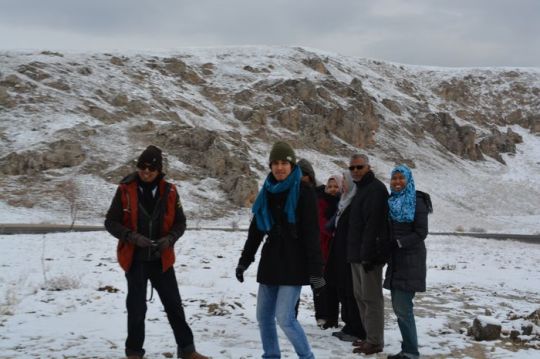
Mount Pentelicus
Let every traveller hasten to reach the top of Mount Pentelicus. It is loftier than Snowdon; but it is only some twelve miles from Athens, a morning walk for the average hill-climber. In the hollow which seems to lie beneath our feet, as we gaze on the wonderful scene from the summit, the Acropolis, with the Parthenon and Propylaea portico, dominate the basin of Athens. It is easy to mark the Nyx where Themistocles and Pericles, Alcibiades and Demosthenes addressed the people; there is the agora where Socrates stood and questioned all who cared to answer; there is Mars’ Hill where Paul spoke to philosophers and idlers about the Unknown God.
One can almost make out the olive grove which still seems to mark the site of Plato’s Academy, and not far from it the knoll which marks Colon os, the birthplace of Sophocles, the scene of his exquisite drama of the exiled Oedipus. In the two hundred years that sever the age of Pisistratus from that of Demosthenes, what a harvest of genius in all forms of human power—in war, art, poetry, policy, philosophy — has been gathered from that little field, which from our mountain top looks like a few bare, barren, sunbaked acres ! What an outburst of human activity and invention in that dazzling light and purity of atmosphere, where, as their poet says, they passed their days ‘ in dainty delight, in most pellucid air,’ or as our own poet has said —
‘ Where, on the Mgean shore, a city stands Built nobly, pure the air and light the soil — ’
The atmosphere of Athens still seems to be light rather than air: its soil seems to be not earth, but the dust of white marble bulgaria trips.
Still standing on Pentelicus
Still standing on Pentelicus, we may see a little further Piraeus and the three ports beside the blue gulf, from whence some thousand fleets of triremes have set sail for all parts of the Mediterranean. And just across the thin streak of blue rises the island of Salamis. The water beneath it is the scene of the most famous sea-fight in history: beyond, the hills look down on the birthplace of Aischylus: in the distance rise up the crag of Acro- Corinth and the mountains of Argolis, Cithaeron, Helicon, Parnes, and Hymettus. To the west and south, half Greece can be outlined, or traced by its topmost peaks and distant islands. If we turn northwards, beneath our feet, an hour or two on foot below us, lies a quiet, drowsy plain along the sea-coast, sheltered by the vast ranges of Euboea.
That quiet, drowsy plain is Marathon, where Greeks first met the Mede in arms in the great day of the Athenian glory. The tumulus still to be seen was always known as the sepulcher of the Athenian warriors. Along the reedy shore Aischylus and his brothers fought in the desperate embarkation of the Persians. And in the northern distance we see the mountains which tower above Thermopylae. This union of magnificent scenery with so large a prospect over historic scenes, this vast panorama over the memorials of events commemorated in the greatest poetry and prose of the world, makes the view from Pentelicus live in the memory with that other prospect from the campanile of the Capitol at Rome.
0 notes
Photo
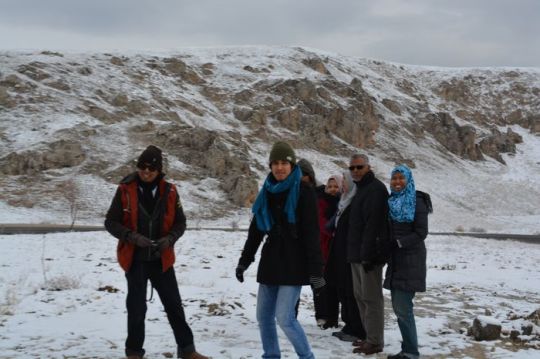
Mount Pentelicus
Let every traveller hasten to reach the top of Mount Pentelicus. It is loftier than Snowdon; but it is only some twelve miles from Athens, a morning walk for the average hill-climber. In the hollow which seems to lie beneath our feet, as we gaze on the wonderful scene from the summit, the Acropolis, with the Parthenon and Propylaea portico, dominate the basin of Athens. It is easy to mark the Nyx where Themistocles and Pericles, Alcibiades and Demosthenes addressed the people; there is the agora where Socrates stood and questioned all who cared to answer; there is Mars’ Hill where Paul spoke to philosophers and idlers about the Unknown God.
One can almost make out the olive grove which still seems to mark the site of Plato’s Academy, and not far from it the knoll which marks Colon os, the birthplace of Sophocles, the scene of his exquisite drama of the exiled Oedipus. In the two hundred years that sever the age of Pisistratus from that of Demosthenes, what a harvest of genius in all forms of human power—in war, art, poetry, policy, philosophy — has been gathered from that little field, which from our mountain top looks like a few bare, barren, sunbaked acres ! What an outburst of human activity and invention in that dazzling light and purity of atmosphere, where, as their poet says, they passed their days ‘ in dainty delight, in most pellucid air,’ or as our own poet has said —
‘ Where, on the Mgean shore, a city stands Built nobly, pure the air and light the soil — ’
The atmosphere of Athens still seems to be light rather than air: its soil seems to be not earth, but the dust of white marble bulgaria trips.
Still standing on Pentelicus
Still standing on Pentelicus, we may see a little further Piraeus and the three ports beside the blue gulf, from whence some thousand fleets of triremes have set sail for all parts of the Mediterranean. And just across the thin streak of blue rises the island of Salamis. The water beneath it is the scene of the most famous sea-fight in history: beyond, the hills look down on the birthplace of Aischylus: in the distance rise up the crag of Acro- Corinth and the mountains of Argolis, Cithaeron, Helicon, Parnes, and Hymettus. To the west and south, half Greece can be outlined, or traced by its topmost peaks and distant islands. If we turn northwards, beneath our feet, an hour or two on foot below us, lies a quiet, drowsy plain along the sea-coast, sheltered by the vast ranges of Euboea.
That quiet, drowsy plain is Marathon, where Greeks first met the Mede in arms in the great day of the Athenian glory. The tumulus still to be seen was always known as the sepulcher of the Athenian warriors. Along the reedy shore Aischylus and his brothers fought in the desperate embarkation of the Persians. And in the northern distance we see the mountains which tower above Thermopylae. This union of magnificent scenery with so large a prospect over historic scenes, this vast panorama over the memorials of events commemorated in the greatest poetry and prose of the world, makes the view from Pentelicus live in the memory with that other prospect from the campanile of the Capitol at Rome.
0 notes
Photo
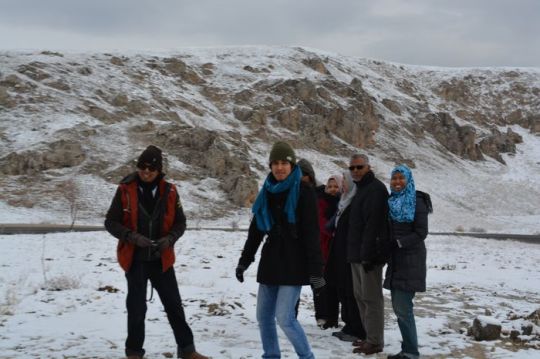
Mount Pentelicus
Let every traveller hasten to reach the top of Mount Pentelicus. It is loftier than Snowdon; but it is only some twelve miles from Athens, a morning walk for the average hill-climber. In the hollow which seems to lie beneath our feet, as we gaze on the wonderful scene from the summit, the Acropolis, with the Parthenon and Propylaea portico, dominate the basin of Athens. It is easy to mark the Nyx where Themistocles and Pericles, Alcibiades and Demosthenes addressed the people; there is the agora where Socrates stood and questioned all who cared to answer; there is Mars’ Hill where Paul spoke to philosophers and idlers about the Unknown God.
One can almost make out the olive grove which still seems to mark the site of Plato’s Academy, and not far from it the knoll which marks Colon os, the birthplace of Sophocles, the scene of his exquisite drama of the exiled Oedipus. In the two hundred years that sever the age of Pisistratus from that of Demosthenes, what a harvest of genius in all forms of human power—in war, art, poetry, policy, philosophy — has been gathered from that little field, which from our mountain top looks like a few bare, barren, sunbaked acres ! What an outburst of human activity and invention in that dazzling light and purity of atmosphere, where, as their poet says, they passed their days ‘ in dainty delight, in most pellucid air,’ or as our own poet has said —
‘ Where, on the Mgean shore, a city stands Built nobly, pure the air and light the soil — ’
The atmosphere of Athens still seems to be light rather than air: its soil seems to be not earth, but the dust of white marble bulgaria trips.
Still standing on Pentelicus
Still standing on Pentelicus, we may see a little further Piraeus and the three ports beside the blue gulf, from whence some thousand fleets of triremes have set sail for all parts of the Mediterranean. And just across the thin streak of blue rises the island of Salamis. The water beneath it is the scene of the most famous sea-fight in history: beyond, the hills look down on the birthplace of Aischylus: in the distance rise up the crag of Acro- Corinth and the mountains of Argolis, Cithaeron, Helicon, Parnes, and Hymettus. To the west and south, half Greece can be outlined, or traced by its topmost peaks and distant islands. If we turn northwards, beneath our feet, an hour or two on foot below us, lies a quiet, drowsy plain along the sea-coast, sheltered by the vast ranges of Euboea.
That quiet, drowsy plain is Marathon, where Greeks first met the Mede in arms in the great day of the Athenian glory. The tumulus still to be seen was always known as the sepulcher of the Athenian warriors. Along the reedy shore Aischylus and his brothers fought in the desperate embarkation of the Persians. And in the northern distance we see the mountains which tower above Thermopylae. This union of magnificent scenery with so large a prospect over historic scenes, this vast panorama over the memorials of events commemorated in the greatest poetry and prose of the world, makes the view from Pentelicus live in the memory with that other prospect from the campanile of the Capitol at Rome.
0 notes